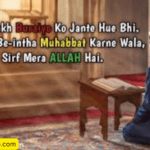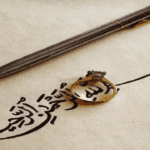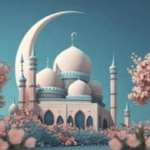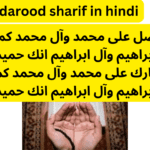In the rich tapestry of Islamic traditions, maghfirat ki dua, or the supplication for forgiveness, holds a profound significance. It serves as a means for believers to seek pardon from Allah and embark on a transformative journey towards spiritual healing and growth.
In the intricate folds of Islamic rituals, maghfirat ki dua emerges as a cornerstone, offering believers a channel through which they can connect with the divine and seek forgiveness for their shortcomings.
Contents
- 1 Prayer for Forgiveness for the Deceased:
- 2 Dua for Forgiveness for the Deceased:
- 3 Understanding Maghfirat
- 4 The Power of Dua
- 5 Best Times to Recite Maghfirat Ki Dua
- 6 Steps to Perform Maghfirat Ki Dua
- 7 Examples from Islamic Tradition
- 8 Personal Reflections
- 9 Benefits of Regular Practice
- 10 Common Misconceptions
- 11 Duas for Specific Situations
- 12 Importance of Gratitude
- 13 Encouraging Community Practice
- 14 Real-Life Testimonials
- 15 Addressing Common Challenges
- 16 Conclusion
- 17 Frequently Asked Questions (FAQs)
Prayer for Forgiveness for the Deceased:
Narrated by Abu Huraira (May Allah be pleased with him), Allah’s Messenger (ﷺ) said: When a person passes away, his deeds conclude, except for three: ongoing charity, beneficial knowledge, or a righteous child who prays for the deceased.
Dua for Forgiveness for the Deceased:
Upon learning about someone’s demise, you may express:
إِنَّا لِلَّهِ وَإِنَّآ إِلَيْهِ رَٰجِعُون
हम अल्लाह के हैं और उसी की ओर लौटेंगे
“Inna lillahi wa inallah-e-raji’oon” Translation: “Indeed, we belong to Allah, and to Him, we shall return.”
Additionally, you can recite the following supplication:
اللَّهُمَّ اغْفِرْ لَهُ الَّلهُمَّ ثَبِّتْهُ
हे भगवान, उसे माफ कर दो, भगवान उसे दृढ़ बनाओ
“Allaahum-maghfir lahu Allaahumma thabbithu” Translation: “O Allah, forgive him. O Allah, strengthen him.” (Abu Dawud 3:315)
And another heartfelt prayer:
اللهُـمِّ اغْفِـرْ لِـ-فُلاَنٍ (باسـمه)وَارْفَعْ دَرَجَتََـهُ فِي المَهْـدِيّيـنَ، وَاخْـلُفْـهُ في عَقِـبِهِ في الغَابِِـرِينَ، وَاغْفِـرْ لَنَا وَلَـهُ يا رَبَّ العـالَمـين، وَافْسَـحْ لَهُ في قَبْـرِهِ وَنَـوِّرْ لَهُ فِيهِ
“Allaahummaghfir li (name of the person) warfa’ darajatahu fil-mahdiyyeena, wakhlufhu fee ‘aqibihi fil-ghaabireena, waghfir-lanaa wa lahu yaa Rabbal-‘aalameena, wafsah lahu fee qabrihi wa nawwir lahu feehi.” Translation: “O Allah, forgive [name of the person] and elevate his station among those who are guided. Send him along the path of those who came before, and forgive us and him, O Lord of the worlds. Enlarge for him his grave and shed light upon him in it.” (Muslim 2:634)


Check Out:

Understanding Maghfirat
At its core, maghfirat embodies the essence of forgiveness in Islam. It transcends a mere act of seeking pardon; it symbolizes the believer’s acknowledgment of their imperfections and a sincere desire to be absolved by the Most Merciful.
The Power of Dua
Dua, or supplication, forms the backbone of seeking forgiveness. Maghfirat ki dua, when uttered with sincerity and devotion, becomes a powerful tool for believers to strengthen their relationship with Allah.
Best Times to Recite Maghfirat Ki Dua
While the doors of forgiveness are always open, certain times hold special significance. Exploring these occasions and understanding the heightened efficacy of dua during these moments adds depth to the believer’s spiritual practice.
Steps to Perform Maghfirat Ki Dua
To guide believers on this spiritual journey, here’s a step-by-step process for performing maghfirat ki dua. Remember, the key lies not just in the words but in the sincerity and intent behind them.
Find a Quiet Space
Locate a tranquil space where you can focus solely on your connection with Allah.
Turn Inward
Reflect on your actions and sincerely acknowledge where you’ve fallen short.
Raise Your Hands
Physically manifest your supplication by raising your hands, a gesture symbolizing humility.
Use Personal Language
Speak to Allah in your own words, expressing genuine remorse and a commitment to improvement.
Seek Intercession
Invoke the names of Allah, especially those emphasizing His mercy and forgiveness.
Conclude with Gratitude
Express gratitude for the opportunity to seek forgiveness and strive for self-improvement.
Examples from Islamic Tradition
The Quran and Hadith offer a treasure trove of stories and teachings on seeking forgiveness. Let’s delve into the profound narratives that illuminate the transformative power of maghfirat ki dua.
In Surah Al-Baqarah (2:286), Allah reassures believers that He does not burden a soul beyond its capacity and that prayers for forgiveness are heard. Additionally, the Hadith narrates instances where the Prophet Muhammad (peace be upon him) encouraged his companions to frequently seek Allah’s forgiveness.
Personal Reflections
The beauty of maghfirat ki dua lies in its personal connection. It’s not a formulaic recitation but a heartfelt conversation with the Divine. Readers are invited to share their experiences with this supplication, creating a community of believers bonded by a common quest for forgiveness.
Benefits of Regular Practice
The regular practice of maghfirat ki dua yields multifaceted benefits. Beyond seeking forgiveness, believers experience a sense of tranquility, improved mental well-being, and a deepened connection with their faith.
Common Misconceptions
Addressing misconceptions is crucial. Maghfirat ki dua isn’t reserved for the pious elite; it’s a universal practice accessible to all, irrespective of one’s past actions.
Duas for Specific Situations
The versatility of maghfirat ki dua shines when applied to various life circumstances. Whether in times of difficulty, joy, or uncertainty, believers can find solace in these supplications.
Importance of Gratitude
Gratitude and seeking forgiveness are intertwined. A heart filled with gratitude enhances the sincerity of maghfirat ki dua, fostering spiritual growth.
Encouraging Community Practice
Advocating for communal dua gatherings emphasizes the collective strength in shared supplication. Communities can come together, fostering a sense of unity and shared responsibility.
Real-Life Testimonials
Stories of individuals who have experienced positive transformations through maghfirat ki dua add authenticity to the narrative. Believers can find inspiration in the real-life journeys of others.
Addressing Common Challenges
Recognizing challenges in maintaining a consistent dua practice is essential. Offering practical solutions ensures believers can overcome obstacles and persevere in their spiritual journey.
Conclusion
Maghfirat ki dua is not just a ritual; it’s a dynamic force that propels believers towards spiritual growth. As we navigate the complexities of life, let this supplication be a compass guiding us towards forgiveness, gratitude, and an enduring connection with the Divine.
Frequently Asked Questions (FAQs)
Is maghfirat ki dua only for major sins?
No, maghfirat ki dua is for seeking forgiveness for all sins, major or minor. Allah’s mercy is vast and encompasses all repentant hearts.
Can I perform maghfirat ki dua in any language?
Yes, you can perform maghfirat ki dua in any language you’re comfortable with. The sincerity of your repentance matters more than the language used.
How often should I recite maghfirat ki dua?
There’s no fixed frequency. However, incorporating it into daily prayers and during significant life moments is highly encouraged.
Is forgiveness guaranteed after reciting maghfirat ki dua?
While sincere repentance is crucial, only Allah can guarantee forgiveness. Trust in His mercy and strive to improve yourself.
Can maghfirat ki dua be recited for others?
Yes, you can supplicate for the forgiveness of others, asking Allah to extend His mercy to your loved ones.










